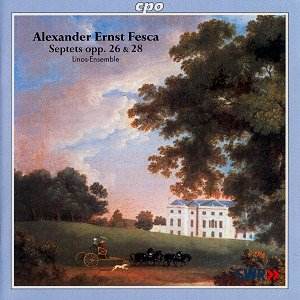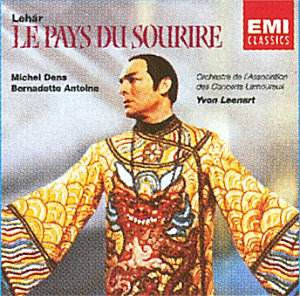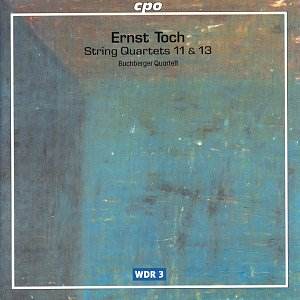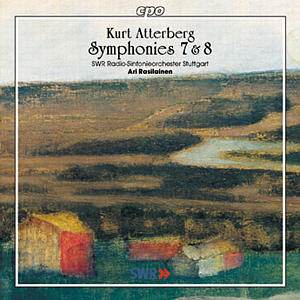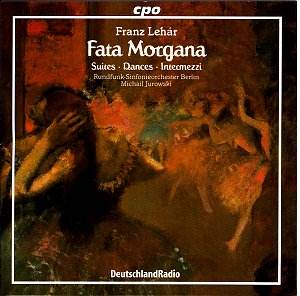 Composer: Franz Lehár
Composer: Franz Lehár
Works: Zigeunerfest (Gypsy Feast), Marsch and Palotas from Wo die Lerche singt (Where the Lark Sings), Preludium religioso from Rodrigo, Ein Marchen aus 1001 Nacht – Scène phantastique (Fairy Tale from 1001 Nights), Ballet Music from Peter and Paul im Schlaraffenland (Peter and Paul in Cockaigne), Fata Morgana, Konzert-Gavotte, Korallenlippen (Coral Lips), Polka mazurka, Resignation from Fürstenkind, Suite de Danse, Chinesische Ballett-Suite (Chinese Ballet Suite)
Performers: Rundfunk-Sinfonieorchester Berlin, conducted by Michail Jurowski
Recording: February 23, 2001, Christuskirche
Label: CPO
Franz Lehár, often synonymous with the golden age of Viennese operetta, presents a rich tapestry of dance and intermezzo in this compilation, which showcases both his early effervescence and the more nuanced expressions of his later years. This recording, “Suites, Dances and Intermezzi,” offers an insightful glance into Lehár’s oeuvre, particularly through the lens of his ballet music, where the familiar charm of his melodies intertwines with the vivid colors of orchestration that characterize his works. The selection here features pieces primarily from his early career, with a few gems from the 1930s that reveal the evolution of his musical language.
The Rundfunk-Sinfonieorchester Berlin, under the baton of Michail Jurowski, demonstrates a commendable understanding of Lehár’s stylistic nuances. The orchestra’s performance captures the buoyancy inherent in Lehár’s work, particularly in the ten movements of the ballet music from Peter and Paul im Schlaraffenland. Each segment, such as the light-hearted “Ferkel-Tanz,” is executed with a delightful sense of humor, though at times the orchestration leans towards the predictable. Jurowski’s direction encourages a lively interpretation, which is particularly effective during the more exuberant dances where the strings and woodwinds engage in a playful dialogue, evoking the spirit of a Viennese soirée.
The recording quality is notably warm, allowing the rich textures of the orchestration to resonate beautifully. The acoustic environment of Christuskirche contributes to a sense of intimacy while maintaining clarity across the orchestral spectrum. The brass sections, for instance, are crisply articulated, delivering the military march from Wo die Lerche singt with an infectious buoyancy that is both engaging and celebratory. However, moments of greater introspection, particularly in the Preludium religioso, reveal a more profound emotional depth. The violin solo, imbued with pathos, resonates with a sensitivity that harkens back to Lehár’s earlier influences, notably the Czech composer Fibich, suggesting a depth that contrasts with the more superficial charm of the surrounding works.
While much of the compilation engages with familiar motifs and predictable tropes of the operetta genre—czárdás, polkas, and the saccharine lyricism characteristic of Lehár’s style—the inclusion of the Resignation from the Fürstenkind suite stands out as a moment of genuine emotional resonance. Here, the thematic development hints at the motifs of loss and renunciation that would come to define Lehár’s later masterpieces, showcasing a maturity that is less frequently encountered in his earlier works.
The Chinesische Ballett-Suite offers another intriguing glimpse into Lehár’s stylistic versatility. While the oriental influences are apparent, they sometimes come across as overly sentimental, as if viewed through a nostalgic lens rather than genuine cultural engagement. Nonetheless, the suite’s melodic inventiveness and tonal colors are engaging, bridging the gap between whimsy and artistry.
This collection ultimately presents a delightful, if somewhat familiar, assortment of Lehár’s dance music, performed with enthusiasm and warmth. While it may not venture into the more groundbreaking territories of his later works, it serves as an enjoyable representation of the composer’s early brilliance and the charm that remains a hallmark of Viennese operetta. For those familiar with Lehár’s oeuvre, this recording will be a pleasant addition, while newcomers may find a lively introduction to his captivating world.
